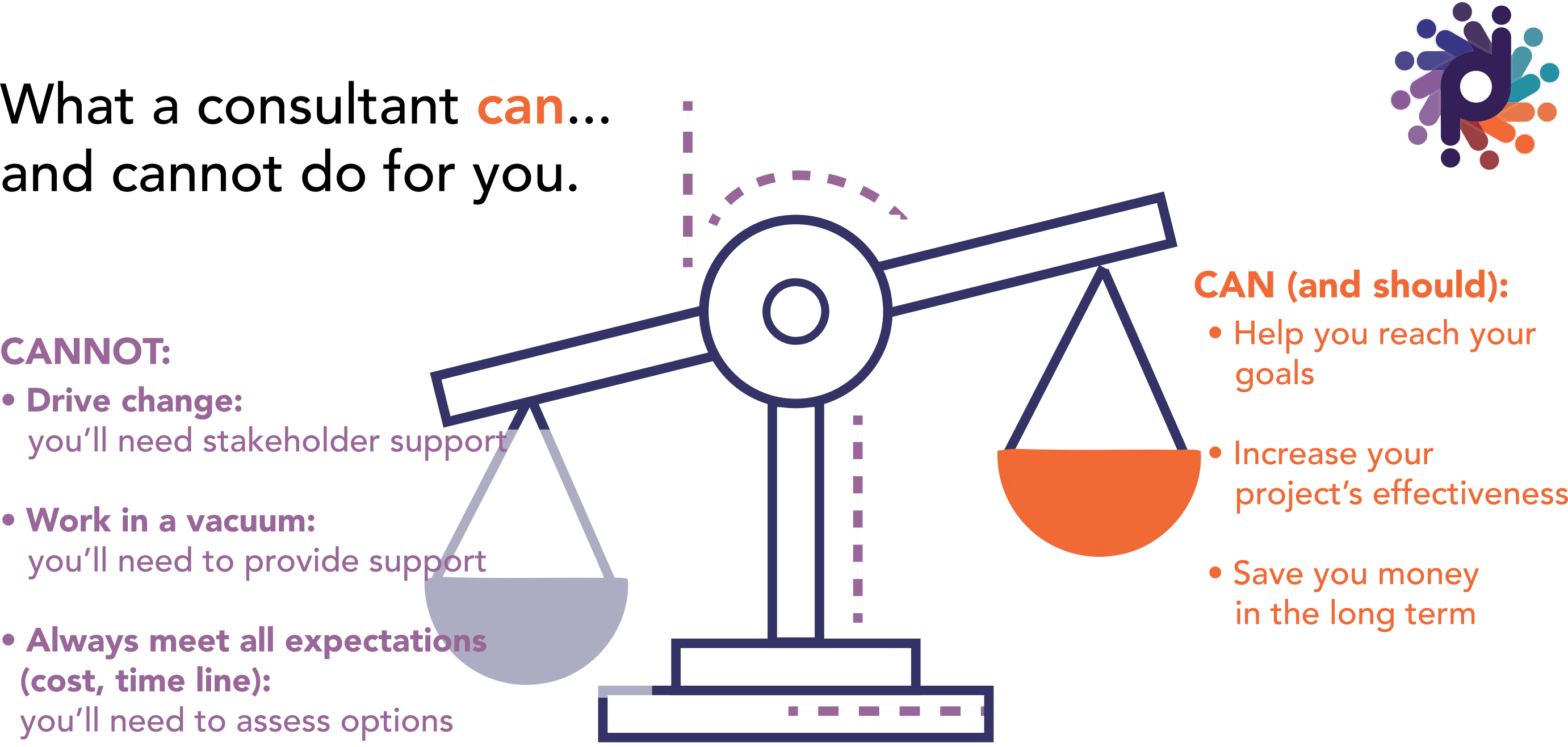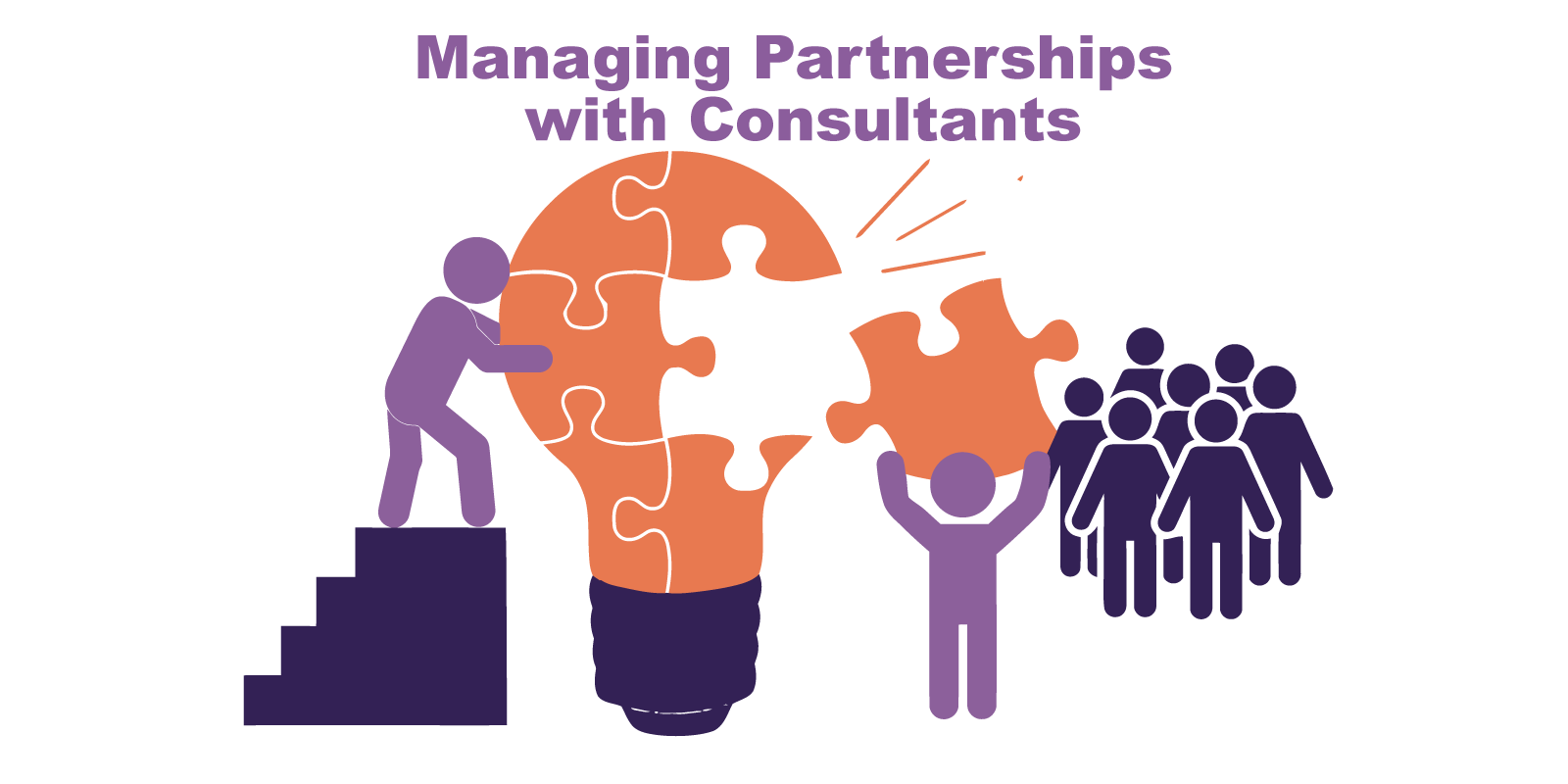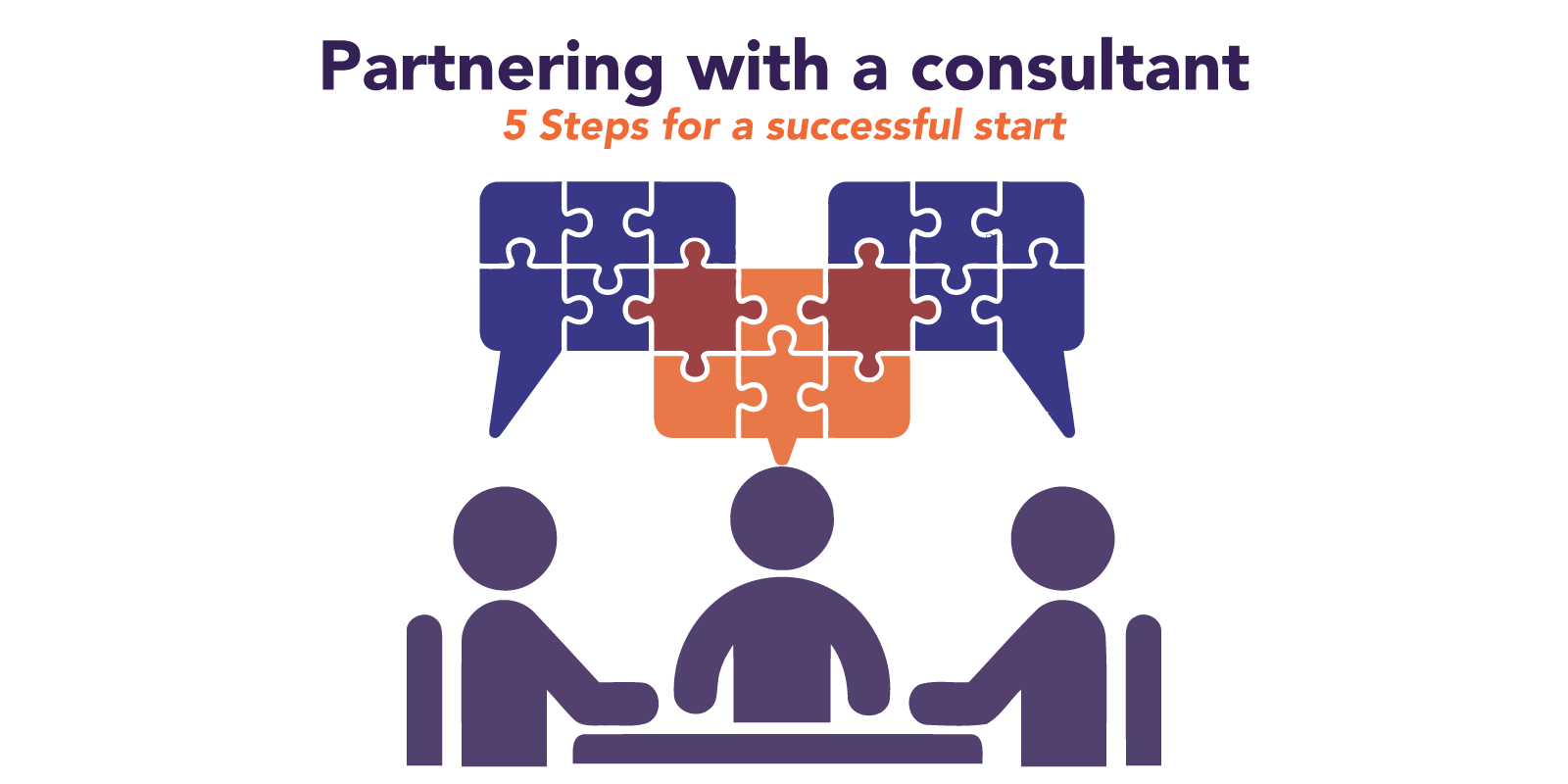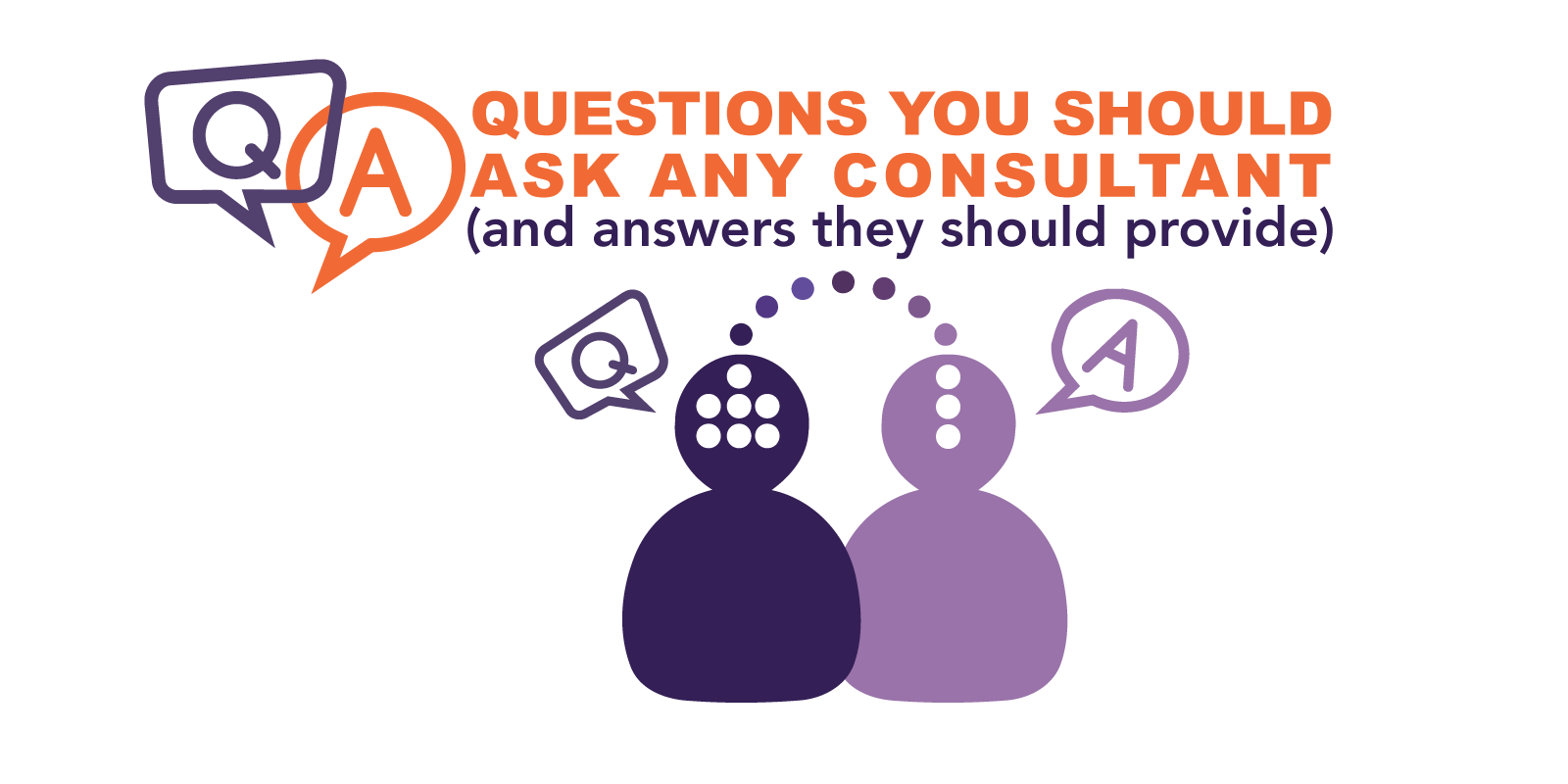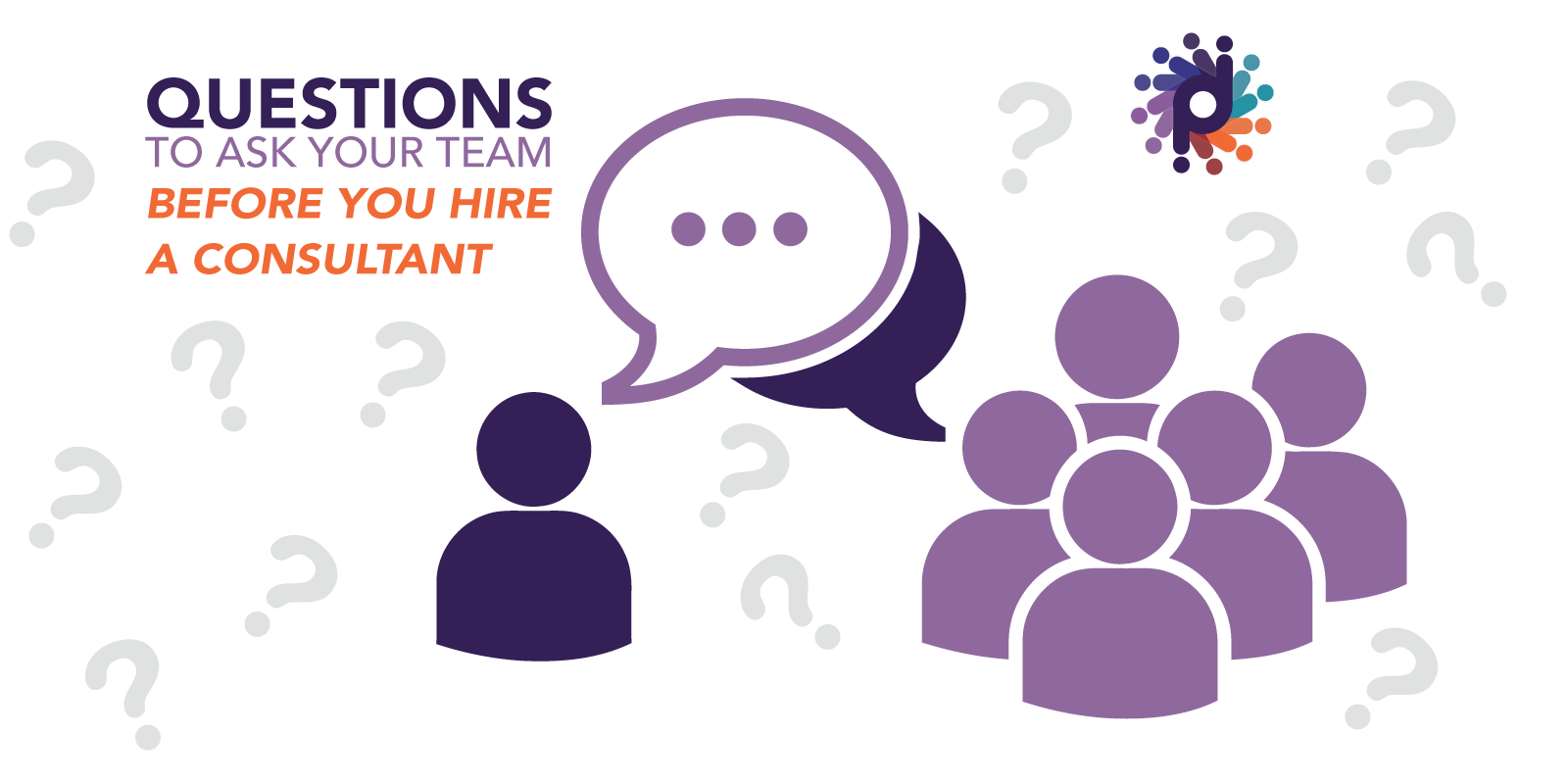There may be many reasons why your organization is considering hiring a consultant. Perhaps you need a strategic plan and want an independent person to facilitate the process, or you are developing a new program and need expertise your staff doesn’t have, or you need to conduct a needs assessment but don’t want to bring in additional staff.
These are all good reasons. Consultants are often used by organizations to support efforts or provide expertise and perspective.
What Consultants Can Do
- Help your organization reach its goals
- Facilitate strategic planning process
- Offer a fresh perspective on an organization’s strengths and opportunities
- Share expertise for program development and evaluation
- Identify and secure funding
- Help your staff be more effective
- Take on projects that take staff away from their core responsibilities
- Identify areas for capacity building
- Provide training and support
- Improve communication and conflict resolution
- Help you save money
- Develop new systems for managing operations or providing services
- Identify inefficiencies and help solve them
- Offer creative, innovative solutions for cost savings
- Complete short-term projects without having to hire new staff
What Consultants Can’t Do
But that doesn’t mean consultants are always the right answer for your organization. It may not be cost-effective to bring in a consultant to complete a job that could be done by existing staff, board members, or partners. There are also certain things consultants can’t do.
Consultants can’t drive change. Although they can identify opportunities for change, make the case for change, and help facilitate the process, it’s the organization’s leaders that make decisions and staff that implement change.
Assess if your organization is at a place to make change. If not, hiring a consultant to do just that is not likely to result in long-term, sustainable change.
Ask yourself:
- What change do we want to make?
- Who are the decision-makers in the organization regarding this change?
- Are they on board? If not, what needs to happen for them to support this change?
Consultants can’t work in a vacuum. Unless you’ve hired a consultant for a stand-alone/ independent project, you’ll need to be prepared to partner with them. A consultant needs your insight and guidance to produce relevant recommendations and solutions. They may provide training and oversight, but you and your staff will need to implement.
Ensure you can designate staff time and resources to work with the consultant and implement their recommendations. If that’s not feasible, it’s not the right time to hire a consultant.
Ask yourself:
- Who are the key decision makers? Do they have time to spend with a consultant to ensure the “big picture” issues are addressed?
- Who would the internal lead be?
- What are this person’s current responsibilities? Would some of that work need to shift? And if so, to whom?
Consultants can’t (always) meet all expectations if a project is underfunded or has a short timeline. Consultants that have expertise and skills that put them in high demand understand the time and effort it will take to deliver high-quality solutions. It may take longer, or require more resources than you are able to put in.
Ensure you have a well defined scope of work, and then look across the lifespan of the project to determine the real costs — both from a resource and financial standpoint. If you do a project in-house would you need to hire new staff? Or reallocate efforts from other projects?
You may find hiring a consultant is the right answer but if both parties are not comfortable with the scope of work, pricing, and timeline, there will likely be disappointment all around.
Ask yourself:
- How important is this project to your organization’s mission? What value does it add?
- What are the costs if you don’t do the project? What are the costs if you do the project in -house?
Balance the internal costs against the costs of a consultant. While consulting costs are typically front-loaded, they may save you money in the long run.
Good consultants add value and help you meet your goals, but you need to know when, why, and how to use them to make the most of the partnership. Consider the questions outlined above to help you assess whether hiring a consultant is the right solution to meet your organization’s needs.

